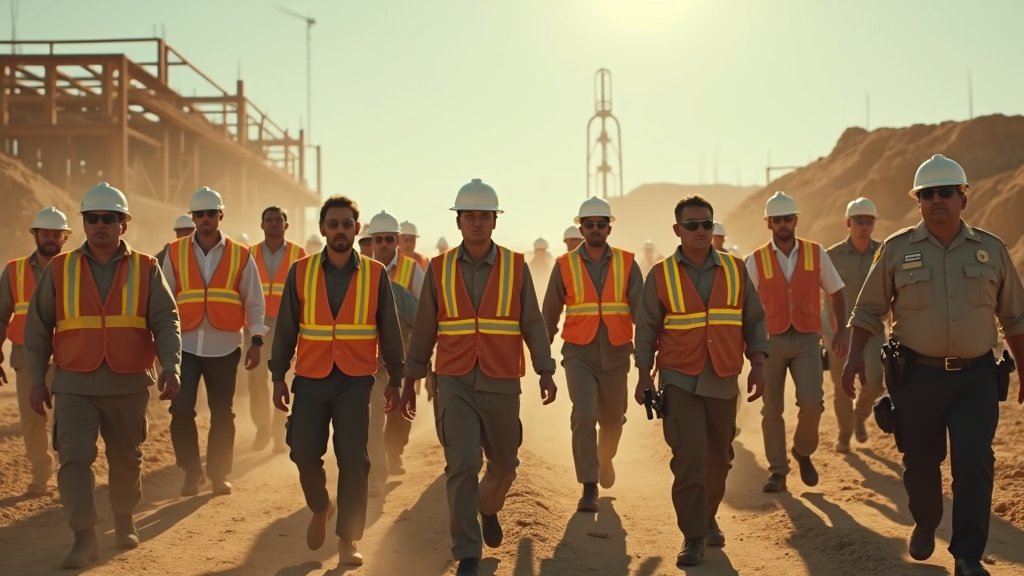LOS ANGELES, CA – The Los Angeles Dodgers baseball organization reportedly barred federal immigration agents from accessing team grounds at Dodger Stadium on Thursday, June 19th, according to accounts from individuals present. The incident occurred during a game and amidst rising tensions over ongoing immigration enforcement actions by U.S. Immigration and Customs Enforcement (ICE) in the Los Angeles area.
Sources at the scene reported that federal agents attempted to access the stadium’s parking lots. This attempt coincided with a protest by Angelenos gathered at the stadium entrance, specifically demonstrating against ICE activities.
Incident at Dodger Stadium
The confrontation unfolded on the evening of June 19th. As the Dodgers were hosting a game, federal ICE agents were reportedly observed seeking entry to the extensive parking facilities surrounding the stadium. Simultaneously, a group of protesters had convened at the stadium’s entrance, voicing their opposition to the agency’s operations, particularly recent raids in the metropolitan area.
According to reports from activists present at the protest, the Dodgers organization took action to prevent the federal agents from entering the stadium grounds or accessing the parking areas during the game. While details regarding the specific nature of the interaction or the exact directives given remain limited in initial reports, the core action described is the team reportedly blocking ICE access.
This incident gained further prominence as activists present shared accounts claiming that ICE had, earlier on the same day, utilized the Dodgers’ parking lot facilities. According to these reports, federal agents had allegedly used the parking lot to process individuals who had been detained during a recent raid conducted at a nearby Home Depot location. The alleged prior use of team property for immigration enforcement purposes adds a layer of complexity to the reported decision to deny access later in the day.
Broader Community Tensions
The reported confrontation at the stadium entrance is situated within a broader context of criticism directed at the Dodgers organization regarding its perceived engagement with or support for the immigrant community in Los Angeles. Activists and community members have raised concerns that the team has not done enough to stand in solidarity with immigrants, especially in the face of increased federal enforcement activities.
These tensions were highlighted by a separate, recent incident involving singer Nezza. During an event at Dodger Stadium, Nezza performed “The Star-Spangled Banner.” Despite reports suggesting a request for the anthem to be sung in English, Nezza chose to perform it in Spanish. Explaining her decision, Nezza stated that the performance was intended as a moment to stand with her community. Nezza’s parents are immigrants, originally from Colombia and the Dominican Republic, a background she cited as influencing her perspective and connection to the community she referenced.
This performance became a focal point in discussions about the team’s relationship with Los Angeles’ diverse population and the role of public symbols, such as the national anthem, in reflecting community identity and solidarity.
Fallout and Future Implications
The reported decision by the Dodgers to block ICE access, while seemingly a direct response to the presence of agents during a public event and protest, has been interpreted by some as a significant, albeit potentially reactive, stance amidst the ongoing debate. It occurs against the backdrop of persistent ICE raids and the associated anxiety and disruption experienced by immigrant communities across the nation, including in Los Angeles.
The team’s action on June 19th, combined with the earlier report of the parking lot’s alleged use and the high-profile anthem performance, collectively contribute to a complex narrative surrounding the Dodgers’ role and responsibilities within its deeply diverse home city. As of reporting, the full implications of this incident and the team’s potential future interactions with federal agencies or its public stance on immigration issues remain subjects of ongoing observation and discussion within the community and beyond.
The incident underscores the increasing intersection of federal policy, community activism, and the operations of major public institutions like professional sports franchises in cities with large immigrant populations facing intensified enforcement efforts.





